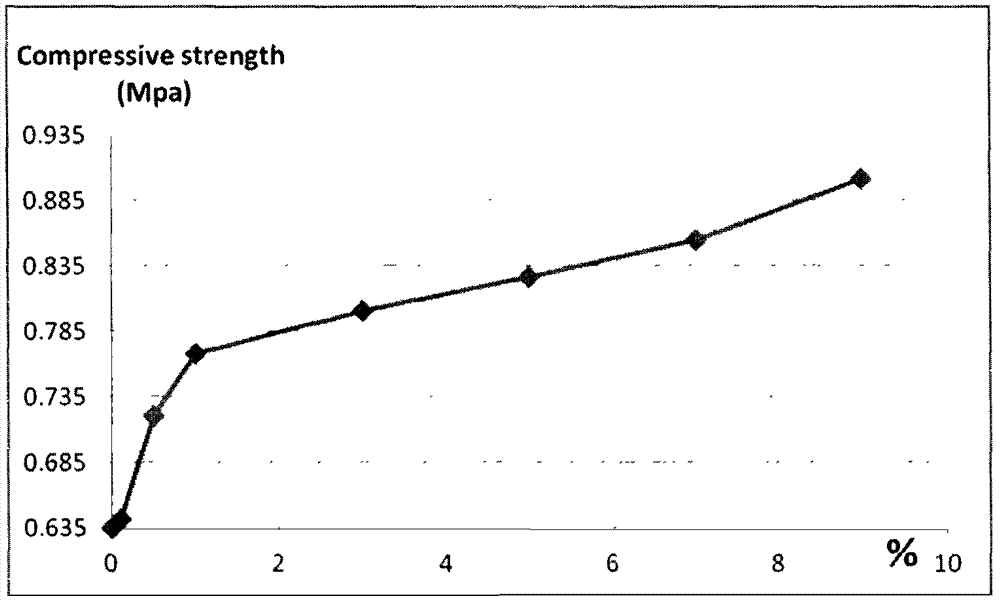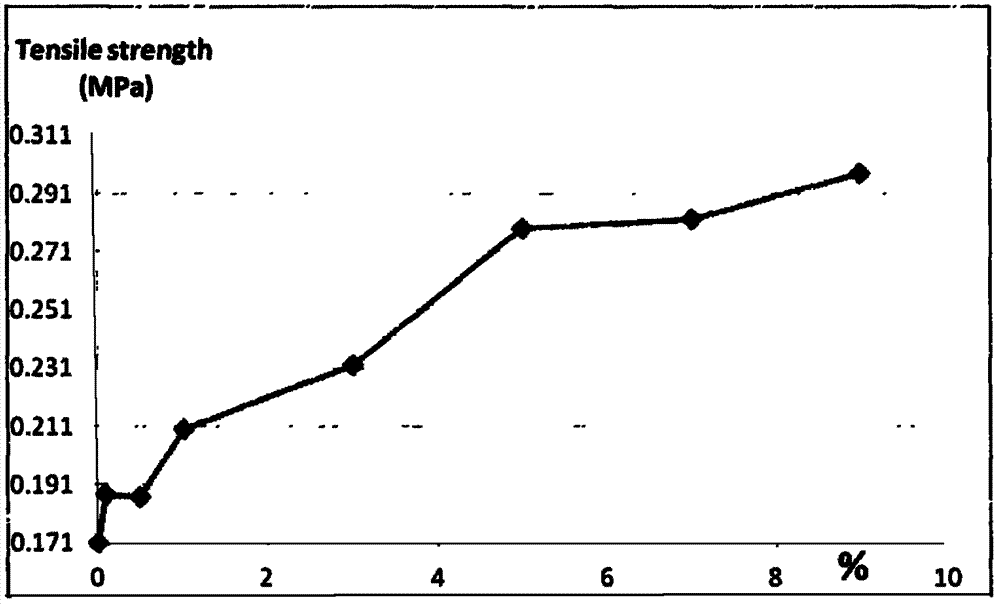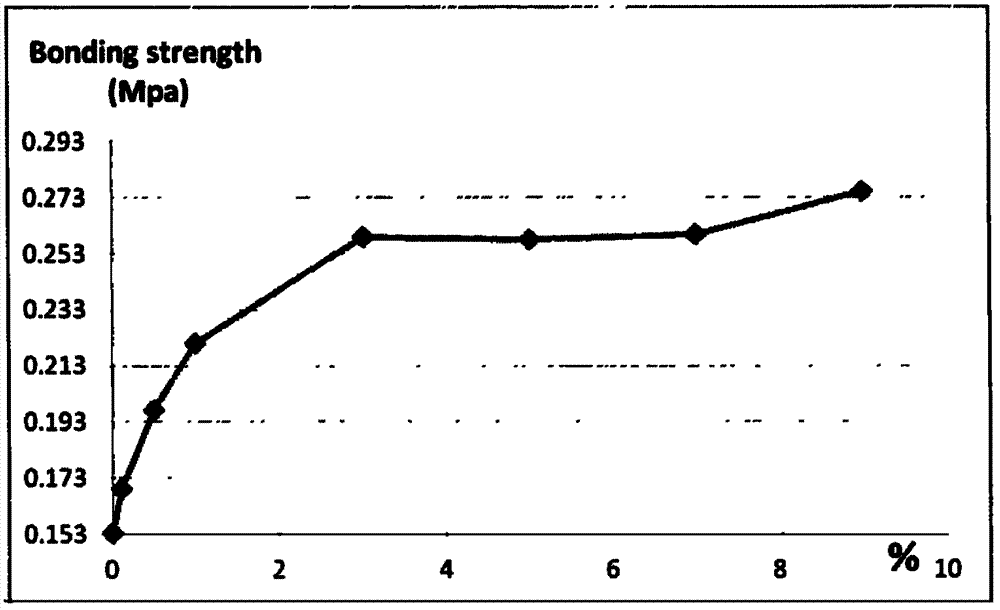High-strength high-heat-insulation inorganic heat-preservation decorative external wall face brick containing nano materials
A nano-material and inorganic thermal insulation technology, applied in covering/lining, building, building structure, etc., can solve the problems of low strength of external wall insulation boards/bricks, can not meet engineering needs, increase thermal conductivity, etc., to reduce water evaporation The effect of speed and quantity, inhibition of crack growth, and improvement of fracture toughness
- Summary
- Abstract
- Description
- Claims
- Application Information
AI Technical Summary
Problems solved by technology
Method used
Image
Examples
Embodiment 1
[0029] Embodiment 1, 1000 grams of ordinary Portland cement, 400 grams of fly ash, 50 grams of polymer binder, 1300 grams of vitrified microbeads of inorganic light heat preservation material, 3 grams of polypropylene fiber, and 3 grams of modified plant fiber , 1.5 grams of maleic acid sulfonate polyoxyethylene ester, appropriate amount of salt water, add and uniformly mix 70 grams of nano calcium carbonate with a particle size of 60 nanometers in the mixing system. Leave anchor holes. After the base insulation layer is formed, the strength of the base insulation layer gradually increases to a predetermined value through the cross-linking process of organic polymer materials and the cement hydration drying process, and then the base insulation layer is coated with paint to produce imitation metal, imitation stone, Imitation wood decorative effect. A silicone waterproof coating can be applied to the outer surface of the brick.
Embodiment 2
[0030] Example 2, 1000 grams of sulphoaluminate cement, 400 grams of volcanic ash, 50 grams of polymer binder, 1200 grams of hollow ceramsite, an inorganic lightweight thermal insulation material, 5 grams of viscose fiber, and 2 grams of polycarboxylate superplasticizer , an appropriate amount of water, add and evenly mix 60 grams of titanium dioxide particles with the most probable particle size of 65 nanometers in the mixing system, and the mixing system is formed by pressure, and anchor holes should be reserved during the pressing process. After the base insulation layer is formed, the strength of the base insulation layer gradually increases to a predetermined value through the cross-linking process of organic polymer materials and the cement hydration drying process, and then the base insulation layer is coated with paint to produce imitation metal, imitation stone, Imitation wood decorative effect. A silicone waterproof coating can be applied to the outer surface of the ...
Embodiment 3
[0031] Example 3, 950 grams of white cement, 500 grams of phosphorus slag powder, 50 grams of polymer binder, 1250 grams of inorganic light insulation material perlite, 3 grams of polyester fiber, 3 grams of protein fiber, polycyclic aromatic hydrocarbon sulfonate 2 grams of formaldehyde condensate, appropriate amount of water, add and evenly mix 70 grams of nano-silica particles with a maximum particle size distribution of about 70 nanometers in the mixing system. The mixing system is formed by pressure, and anchor holes should be reserved during the pressing process . After the base insulation layer is formed, the strength of the base insulation layer gradually increases to a predetermined value through the cross-linking process of organic polymer materials and the cement hydration drying process, and then the base insulation layer is coated with paint to produce imitation metal, imitation stone, Imitation wood decorative effect. A silicone waterproof coating can be applied...
PUM
 Login to View More
Login to View More Abstract
Description
Claims
Application Information
 Login to View More
Login to View More - R&D
- Intellectual Property
- Life Sciences
- Materials
- Tech Scout
- Unparalleled Data Quality
- Higher Quality Content
- 60% Fewer Hallucinations
Browse by: Latest US Patents, China's latest patents, Technical Efficacy Thesaurus, Application Domain, Technology Topic, Popular Technical Reports.
© 2025 PatSnap. All rights reserved.Legal|Privacy policy|Modern Slavery Act Transparency Statement|Sitemap|About US| Contact US: help@patsnap.com



